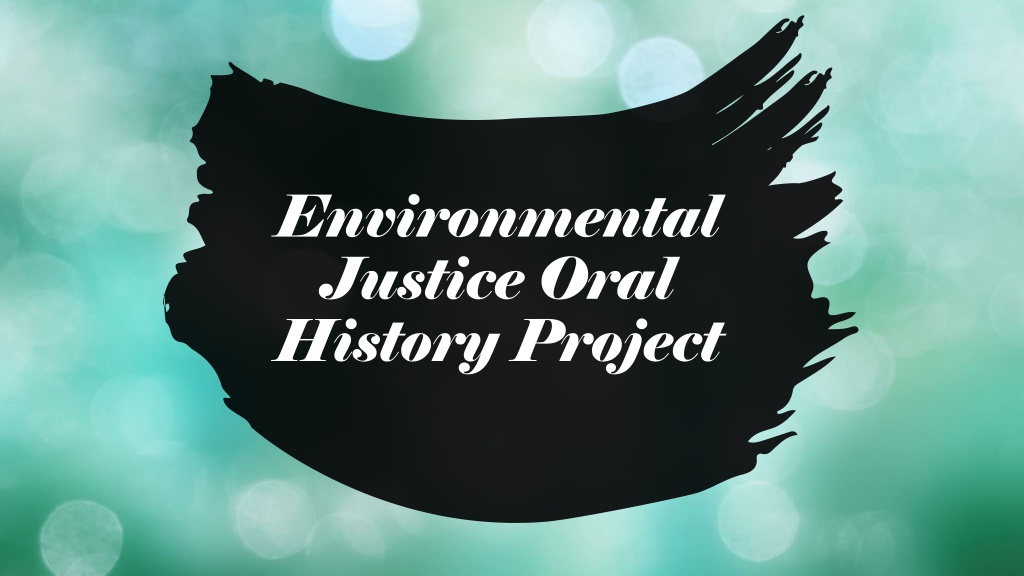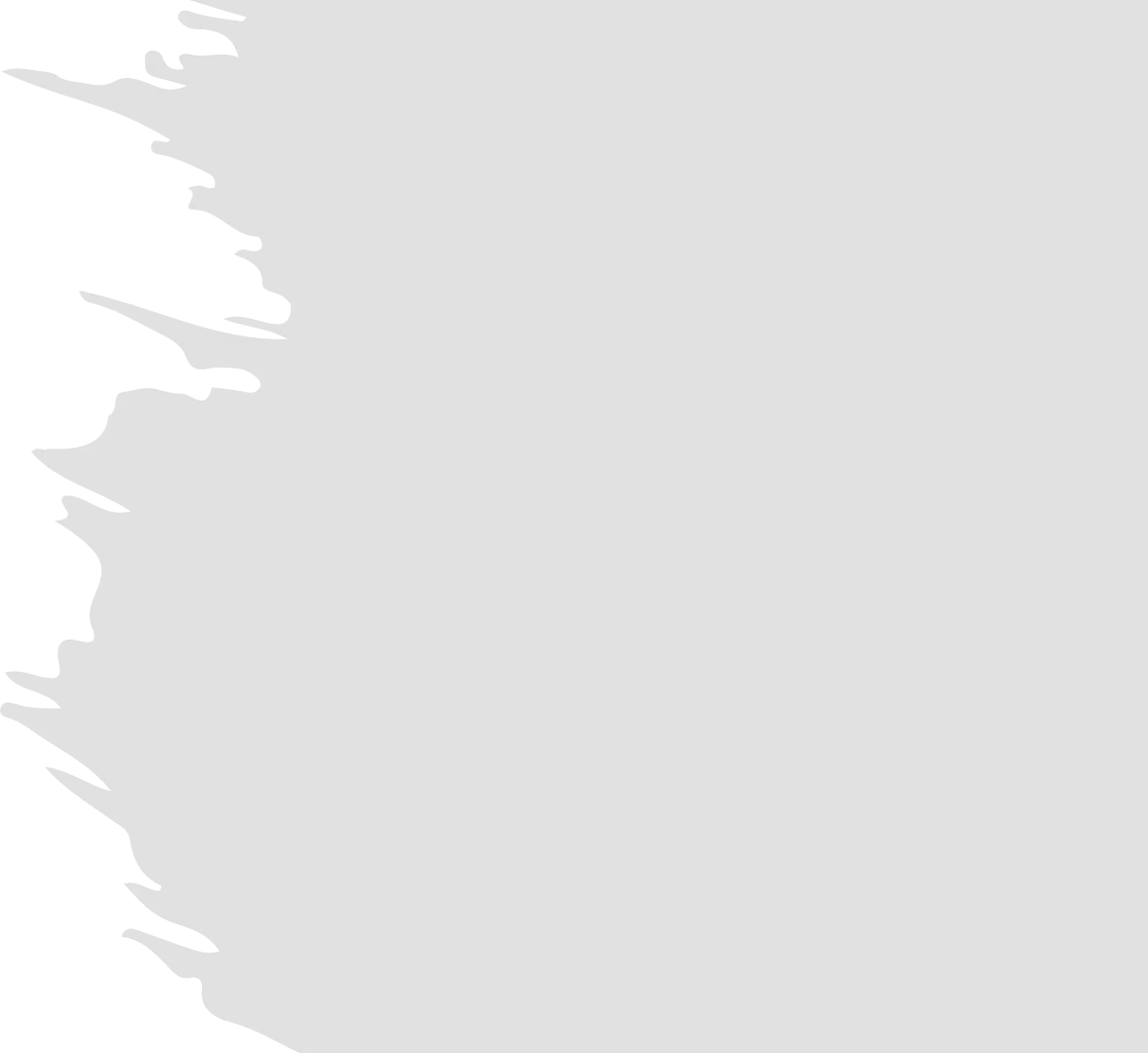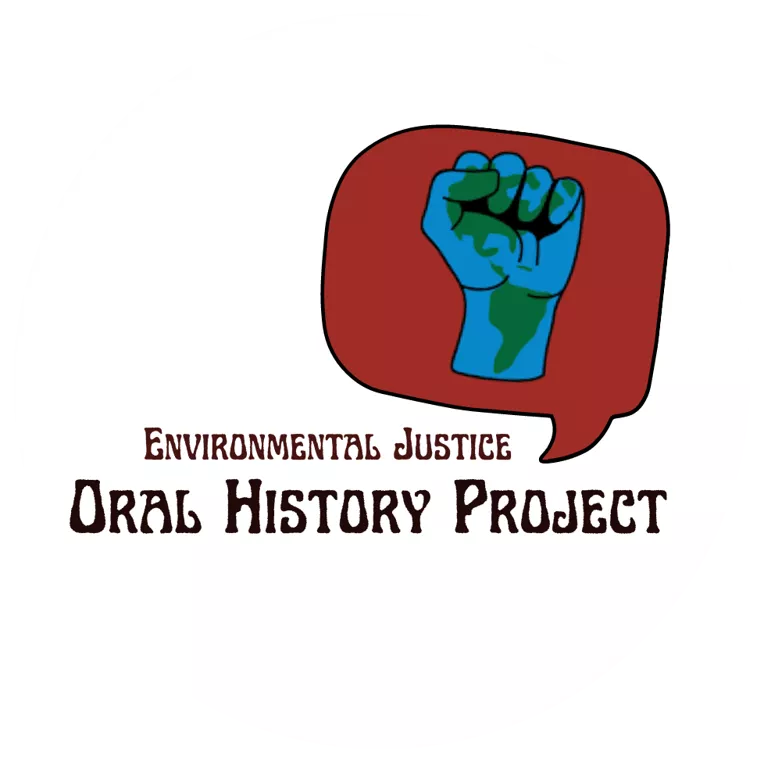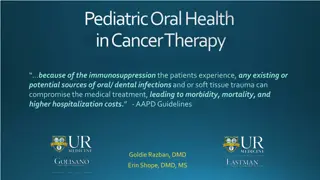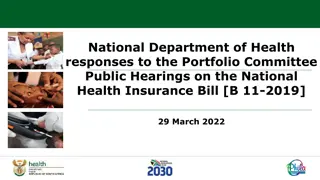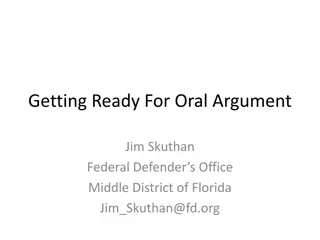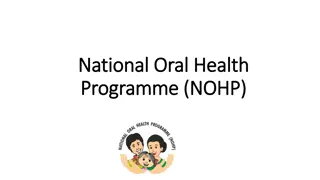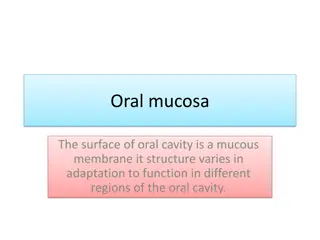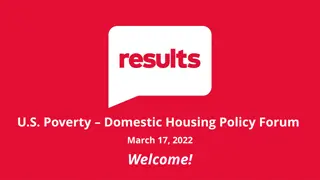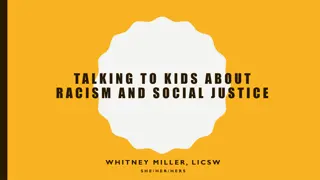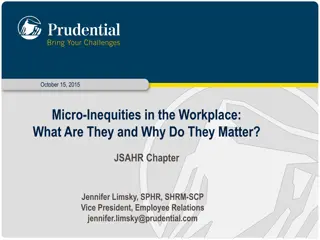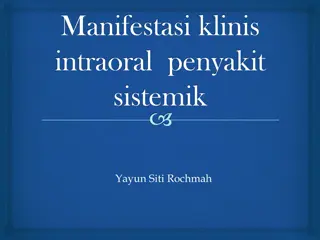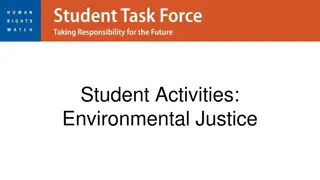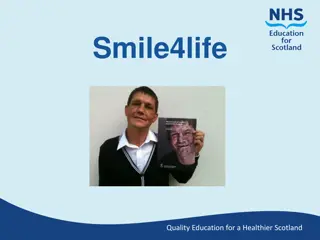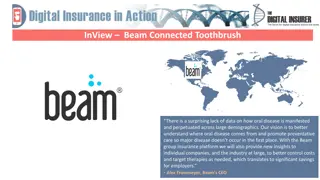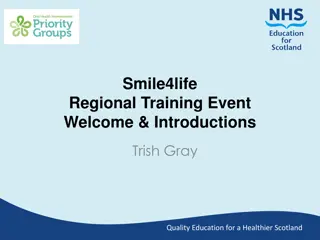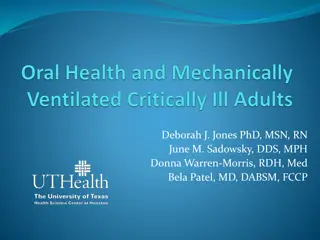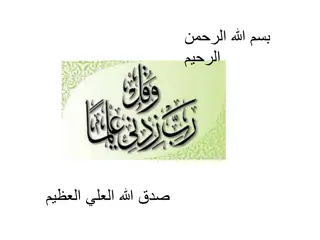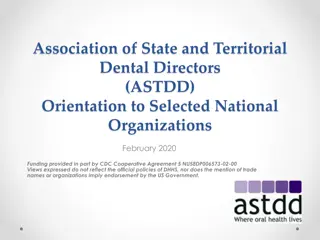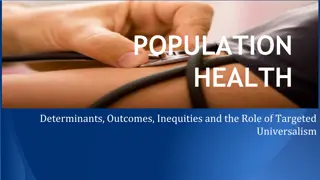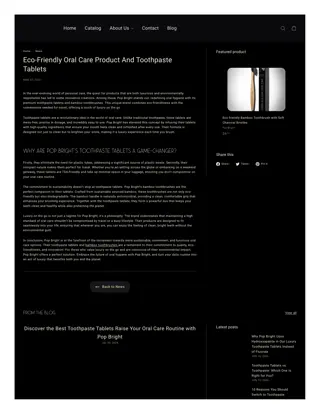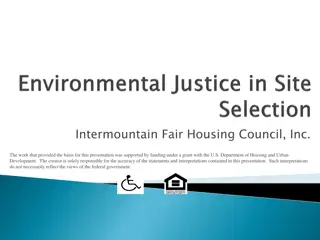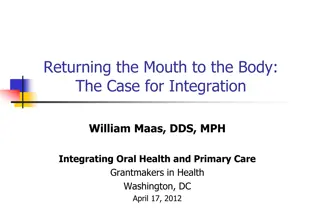Environmental Justice Oral History Project: Documenting Inequities in the American South
The Environmental Justice Oral History Project aims to preserve stories of environmental injustice and racism in rural American South communities through communal storytelling. Led by a team of experts, the project involves creating a podcast, collecting oral histories, conducting methodological research, and producing a journalism series. Oral histories, representing collective knowledge, are crucial in advocating for more equitable policies. The project emphasizes the importance of documenting personal stories in the voices of those interviewed.
Download Presentation

Please find below an Image/Link to download the presentation.
The content on the website is provided AS IS for your information and personal use only. It may not be sold, licensed, or shared on other websites without obtaining consent from the author. Download presentation by click this link. If you encounter any issues during the download, it is possible that the publisher has removed the file from their server.
E N D
Presentation Transcript
Environmental Justice Oral History Project
What is this project? Team Leaders The Bass Connections Scope Timeline & Expectations
What is this? The Covid-19 pandemic has had devastating impacts across rural communities in the American South. As the pandemic continues, stories and memories of community elders and other first-hand observers of environmental injustice and racism are being lost. This project documents and communicates the history of environmental inequities and injustices in the American South through communal storytelling. This project will add a humanist and documentary perspective for communicating about critical environmental issues while advocating for just, equitable, and anti-racist solutions. The work builds upon an ongoing collaboration between the Duke Human Rights Center at the Franklin Humanities Institute, the Nicholas School of the Environment, and the Center for Rural Enterprise and Environmental Justice.
Components EJ Podcast Oral History Collection Methodological Research Journalism Series
Components EJ Podcast Oral History Collection Methodological Research Journalism Series
Team Leaders Click to learn more Cameron Oglesby Erika Weinthal Elizabeth Albright
Oral History Collection Oral histories represent collective knowledge and intergenerational wealth, and these stories urgently need to be documented, archived, and passed down: for the communities themselves, on their own terms, as well as for advocates of the environment, humanities, medicine, and public policy who seek to promote more equitable policies.
What do we mean by Oral History? These are not heavily edited articles or videos. This is not journalism or podcast making or documentary film making. Think of oral history in the same way cultural or ancestral knowledge is often shared by word of mouth or communal relationships. We are recording personal stories as they are told to us and sharing them. Slight editing may take place for flow and to cut out interviewer voice, but we will be sharing these experiences in the voice of those interviewed.
The Final Product The final product will include a comprehensive story map and archival site of life stories and narratives translated as written works, audio interviews, and short videos for the public, as well as oral history materials for local use by those communities documented. The long-term goal is to create a central meeting space and community-owned repository of environmental justice experiences that are sustainably curated by communities with financial and educational (training) support from institutions and organizations across the American South.
Journalism and Podcast Component Journalism: Team members will partner with community leaders and regional media outlets to write community profiles documenting injustices and the EJ movement at large over time. We envision a short series of narrative-driven articles, each focused on a significant effort or issue from a different region or community. The efforts featured can be recent, historic, or ongoing. THE ONLY WAY TO PARTICIPATE IN THE JOURNALISM IS TO FILL OUT THIS GOOGLE FORM by 2/9 Podcast: In partnership with the student podcast Operation Climate, we will be producing a podcast series spotlighting environmental justice advocates and leaders. This project, also in celebration of the 40th anniversary of the Environmental Justice Movement asks prominent leaders to share their life stories, motivations, and experience in the movement as a reflection on the movement's evolution. Interviewees will include members of the WHEJAC, Sierra Club EJ advocates and the community leaders they work with, attendees of the First National People of Color Environmental Leadership Summit, and other youth climate justice activists and seasoned EJ advocates. CONTACT CAMERON OGLESBY AT CEO26@DUKE.EDU TO PARTICIPATE
Journalism and Podcast Component The Oral History work comes first! Journalism: Team members will partner with community leaders and regional media outlets to write community profiles documenting injustices and the EJ movement at large over time. We envision a short series of narrative-driven articles, each focused on a significant effort or issue from a different region or community. The efforts featured can be recent, historic, or ongoing. Students who participate in the journalism and podcast components can count that work toward their Bass Connections commitments, but the oral history work should be prioritized. THE ONLY WAY TO PARTICIPATE IN THE JOURNALISM IS TO FILL OUT THIS GOOGLE FORM Podcast: In partnership with the student podcast Operation Climate, we will be producing a podcast series spotlighting environmental justice advocates and leaders. This project, also in celebration of the 40th anniversary of the Environmental Justice Movement asks prominent leaders to share their life stories, motivations, and experience in the movement as a reflection on the movement's evolution. components don t have too much overlap. Fortunately, the journalism and Bass Connections Interviewees will include members of the WHEJAC, Sierra Club EJ advocates and the community leaders they work with, attendees of the First National People of Color Environmental Leadership Summit, and other youth climate justice activists and seasoned EJ advocates. CONTACT CAMERON OGLESBY AT CEO26@DUKE.EDU TO PARTICIPATE
MAY be opportunity for travel or in-person interviews during Winter Break. Bass Connection The Spring Class Time Summer Break Class will consist of lectures and discussions in oral history collection and storytelling and guest lectures from seasoned EJ advocates and EJ oral historians. Students will be provided resources about the EJ Movement and environmental injustices to familiarize themselves with over the break. Students will finish up interviews over the Winter and early Spring and begin analyzing and curating those stories for the final site and for communal use. Students will be expected to identify an issue of interest and dig into that in preparation for the class In Groups Interested students will help in the design and drafting of our final story map and archive site. Students will work together to identify and reach out to community leaders in their region of interest. They will connect with and build rapport with interested community members and begin interviewing them An orientation and racial equity training will be provided at the end of the summer. May 2023 May 2022 Aug 2022 Dec 2022 Summer Break Fall 2022 Semester Spring 2023 Semester
Journalism and Podcast Fall Journalism Spring Journalism Summer Journalism Students are working with news outlets to get their pieces published. All pieces published by end of 2022. Pair students up and connect them with community leads. Begin connecting with communities Students are actively reporting on their communities and developing their stories Podcast Continue in Spring 2023 The podcast will be working year-round and into Spring 2023 to conduct interviews of prominent EJ advocates and publish them through Operation Climate s networks. Additional avenues for publication are TBD. Sept-Oct 40th Anniversary of the EJ Movement Dec 2022 Jan 2022 May 2022 Aug 2022 Spring Semester Summer Break Fall Semester
What were looking for No formal oral history experience required! We re looking for: Aspiring storytellers, journalistic, documentarians, producers, you name it. If you have an interest in using your voice and the voice of others to education, inform, and uplift, then this is for you. EJ enthusiasts, you don t have to be an experienced EJ advocate, but you must be excited about the work and the movement and open to learning more. Community-oriented people, we re looking for people who value community knowledge and community narrative in environmental spaces. The end goal is to uplift others more so than to further yourself. The end goal is to empower communities and work in service to them. Mission-driven individuals, sometimes the stories can be heartbreaking but by grounding ourselves in the missions, we hope people will feel motivated to continue forward. We want students who believe in this mission.
Additional Notes Students will be asked to give a short presentation at the start of the semester on their topic(s) of interest. Undergrads and Grad students will be working on this side- by-side throughout the semester, BUT we are looking for another graduate student lead!
Other Opportunities Story+ EJ Podcast TODAY @ 4:00pm EST Contact Cameron Oglesby to join the team Join Zoom Meeting https://duke.zoom.us/j/95413666774 Journalism Email Cameron Oglesby for presentation & Fill out this GOOGLE FORM Meeting ID: 954 1366 6774
